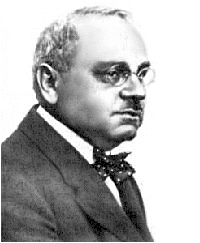
Photo from wikipedia
Dynamic Interpersonal Therapy (DIT) is a brief, time-limited psychodynamic individual therapy in which depressive and anxious symptoms are understood as responses to interpersonal difficulties. Problematic interpersonal representations of the self… Click to show full abstract
Dynamic Interpersonal Therapy (DIT) is a brief, time-limited psychodynamic individual therapy in which depressive and anxious symptoms are understood as responses to interpersonal difficulties. Problematic interpersonal representations of the self and others are conceptualized in DIT as the interpersonal affective focus (IPAF), a predominant and recurring interpersonal pattern that is connected to the symptoms and becomes the foundation of treatment. This article reports the development of a typology for classifying IPAFs, which characterizes the predominant style based on contemporary interpersonal approaches. If such a typology can be shown to have validity in a clinical setting, it could have multiple uses that would improve understanding of how DIT works and for whom it might be effective, for example, assisting the therapist in formulating the IPAF, allowing investigations of treatment outcome and process research, and informing training. An IPAF typology was developed by means of a hybrid method of qualitative analysis of transcriptions of audio recordings of DIT sessions using data from a randomized control and feasibility trial. Results revealed four themes, that is, patterns of relating, which could be described as hostile-dominant, hostile-submissive, friendly-dominant, or friendly-submissive. Limitations include the sample size and diversity, the impact of the inclusion and exclusion criteria of the pilot feasibility trial, and the clinical need to titrate the IPAF. Future research should focus on the reliability and validity of the typology and whether it can be employed in outcome and process research. (PsycInfo Database Record (c) 2022 APA, all rights reserved).
Journal Title: Psychotherapy
Year Published: 2022
Link to full text (if available)
Share on Social Media: Sign Up to like & get
recommendations!